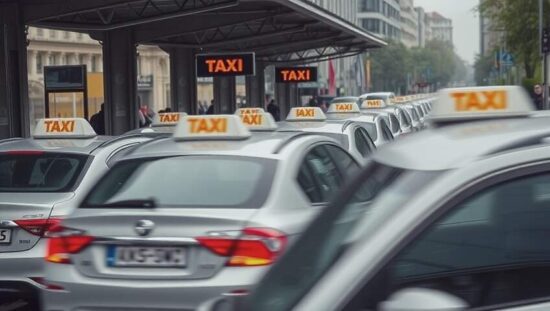The escalating crisis of German rail unreliability is prompting a surge in taxi usage, creating a complex situation with potentially damaging long-term consequences for the transportation sector, according to industry officials. Michael Oppermann, Managing Director of the German Taxi and Rental Car Association, highlighted a growing dependence on taxi services to compensate for increasingly frequent train delays and cancellations, stating the association anticipates this trend will persist.
The reliance is particularly pronounced in major transit hubs like Cologne and Hanover, not necessarily due to localized failures, but due to the sheer volume of passengers passing through these stations. While individual taxi drivers benefit from these emergency fares, with longer journeys sometimes resembling unexpected bonuses, Oppermann cautions that the overall taxi industry faces a systemic threat.
The current system, which utilizes digitally issued vouchers from Deutsche Bahn to cover taxi fares for stranded passengers, presents a paradoxical situation. These vouchers represent a temporary boon for individual drivers, yet ultimately undermine the long-term viability of the taxi business. Oppermann warned that the unpredictable nature of rail services is accelerating a dangerous shift in consumer behavior. Passengers, uncertain of train reliability, are increasingly opting for private vehicles, posing the ultimate competitive challenge to taxis.
“The biggest competitor of a taxi is the privately owned car” Oppermann stated, underscoring the risk that a perception of unpredictable rail transport will permanently erode the appeal and utility of public transportation options. The association holds a nationwide framework agreement with Deutsche Bahn to facilitate these taxi services, but the underlying vulnerability of the rail network continues to cast a shadow over the future of the entire mobility landscape. The reliance on taxi services as a band-aid for rail failures raises critical questions about investment, infrastructure maintenance and the government’s broader strategy for ensuring accessible and dependable transportation across Germany.





